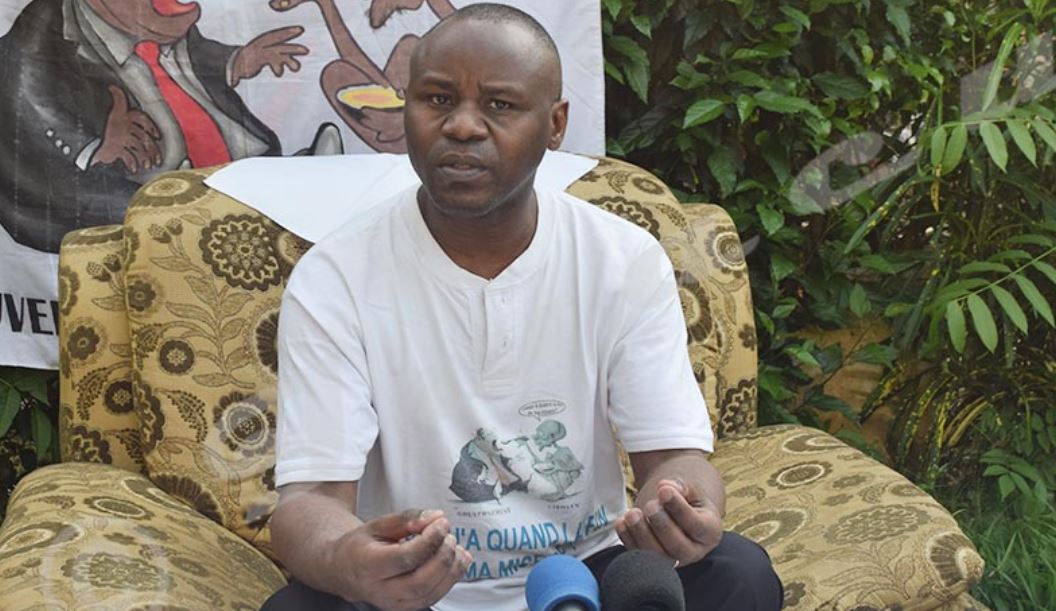Corruption is widely responsible for the high poverty levels among countries in the Great Lakes region according to Apollinaire Mupiganyi the executive director of Transparency International Rwanda.
Mupiganyi made the observation during an exclusive radio program hosted by Gabriel Imanariho on Isango Star radio in Kigali.
“In Transparency International we define corruption as the abuse of power entrusted to you for private gain. In this broad definition we find personal purposes, material gains, money you earn unduly or other favours linked to your functions, abuse of power,”Mupiganyi said.
According to him, these behaviors include, among other things, the money that the corrupt extracts from the citizen when he seeks services.
“It’s widespread. This is what we call bribery.” Mr. Mupiganyi explains that other forms are favoritism and nepotism which tend to use power to give undue advantages to a family acquaintance or acquaintance.
According to him, those in power abuse their positions for sexual favours in return for monetary favors, undue promotion.
In the region, the level of corruption is worrying. The executive director of Transparency International Rwanda paints a picture.
“At the regional level, the scores are among other things low. For example in the DRC has a score of 20/100, Burundi has 17/100 and Rwanda has 51/100 and Uganda has 26/100, Kenya 32 and Tanzania 38. The prevalence of real corruption is very high given the figures and the international transparency report.
Dufina Tabu is president of the Congo volunteer association, Afvoco, engaged in the fight against corruption in Goma. At the microphone of Fidèle Kitsa from Radio Stars de Goma talks about the state of corruption and its consequences in the DRC.
He deplores that corruption is becoming a way of life in the DRC. “It’s no longer corruption but we say article 15, deal with it. We tried to embellish the word corruption.
Police officers, for example, traffic police officers. They are there and are obliged to pay every day to their leader. It’s like a normal life. If you don’t give, you’ll be taken out of the business.”
According to him, corruption affects the country’s economy. The strongest get rich easily.
We always sing, he says, “rich country while the people are poor. “It’s annoying and revolting. Insecurity, people without money you for. This is the famous article. At the time of Mobutu we said you have a weapon. You have to survive with it. We are experiencing insecurity.”
In Bujumbura, Gabriel Rufyiri (pictured above), president of the Observatory for the fight against corruption and economic embezzlement (Olucome), spoke to Joyce Guilaine Imanishimwe of Bonesha FM.
He talked about the state of corruption. For him, corruption is an obstacle to the development of a country.
“Operated by the big fish, they steal a lot of money that would build hospitals, roads, big markets. Anarchic corruption or gray corruption is petty corruption among the police, small citizens.”
He considers that this corruption results in the loss of confidence of the ruled in the leaders. “In the Great Lakes region we are taking ineffective measures. We remain corrupt and poorest countries.”
The young people of Uvira at the microphone of Sifa Munyaka Angèle of RNDT of Uvira give their opinions. They speak of a degraded system of governance. For them, public authorities must act. They consider that it is the sense of humanity that has left people’s minds. The leaders, he laments, have amassed money for themselves and are leaving the population in poverty.
“We are resourceful. There is influence peddling. It is inconceivable that an MP does not pay tax while taxpayers pay it. There is a lack of vision from leaders. They are corrupt. They fear being fired without getting rich”.
Apollinaire Mupiganyi, proposes ways and means. For him, corruption can lead to deaths, it is an obstacle to prosperity. “It eats away at development and favors leaders. Money is being diverted to tax havens. Endemic corruption creates malcontents who rise up against those in power.”
He explains that the fight against corruption is a choice. He talks in particular about the essential role of independent media in denouncing cases of corruption. We need, he says, a robust legal framework. He gives the example of Rwanda, whose new law of 2018 for the fight against.



















